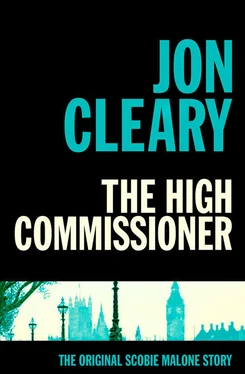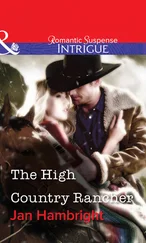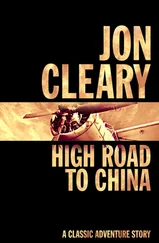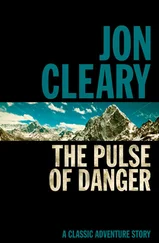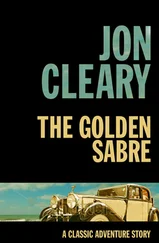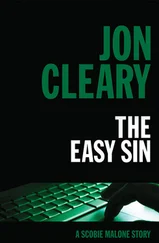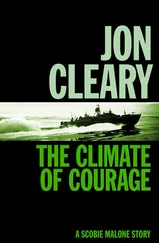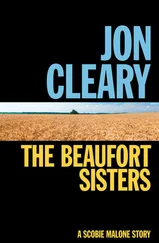Jon Cleary - The High Commissioner
Здесь есть возможность читать онлайн «Jon Cleary - The High Commissioner» — ознакомительный отрывок электронной книги совершенно бесплатно, а после прочтения отрывка купить полную версию. В некоторых случаях можно слушать аудио, скачать через торрент в формате fb2 и присутствует краткое содержание. Жанр: unrecognised, на английском языке. Описание произведения, (предисловие) а так же отзывы посетителей доступны на портале библиотеки ЛибКат.
- Название:The High Commissioner
- Автор:
- Жанр:
- Год:неизвестен
- ISBN:нет данных
- Рейтинг книги:3 / 5. Голосов: 1
-
Избранное:Добавить в избранное
- Отзывы:
-
Ваша оценка:
- 60
- 1
- 2
- 3
- 4
- 5
The High Commissioner: краткое содержание, описание и аннотация
Предлагаем к чтению аннотацию, описание, краткое содержание или предисловие (зависит от того, что написал сам автор книги «The High Commissioner»). Если вы не нашли необходимую информацию о книге — напишите в комментариях, мы постараемся отыскать её.
The High Commissioner — читать онлайн ознакомительный отрывок
Ниже представлен текст книги, разбитый по страницам. Система сохранения места последней прочитанной страницы, позволяет с удобством читать онлайн бесплатно книгу «The High Commissioner», без необходимости каждый раз заново искать на чём Вы остановились. Поставьте закладку, и сможете в любой момент перейти на страницу, на которой закончили чтение.
Интервал:
Закладка:
The women grimaced and smiled at him; but Malone saw that they were still not reassured. Quentin glanced at him. “Do you ever have need of a second wind, Mr. Malone?”
“The time’s coming up now,” said Malone, and underlined his next words: “I’ll be glad to get home.”
As the Quentins and Lisa went ahead of him out of the big entrance hall Malone looked back. On the other side of the big room Madame Cholon stood by the terrace door watching him, her gaze as cold and steady as that of a marks-man taking aim. Jamaica was moving towards her: his face, too, had the look of a hunter.
II
Pallain sat in the rented black Ford Zephyr. He had learned the advantages of having several passports and driving licences, and the car had been rented in the name of Pierre Martin. He had never liked the risk of using a stolen car on a job; it was always best to stay within the law as much as possible; in a stolen car you always stood the risk of being picked up by a too-observant flic . The Zephyr would be abandoned after they had made their getaway and it could never be traced to Jean-Pierre Pallain. The deposit would be lost, but Madame Cholon was paying for that and fifteen pounds was nothing against the stakes she was playing for.
Pham Chinh, sitting beside him, went to light a cigarette, but Pallain slapped the book of matches from his hand. “Save it,” he said in French. “You can have one later.”
Pham Chinh rubbed a nervous finger down his youthful cheek. He was thirty years old, but he had looked the same age for the past fifteen years: only the eyes had always been old, old and cunning and mean. “It is getting late. Don’t these diplomats ever come home?”
“At least we’re waiting in comfort. Pity poor Tho over there in the gardens.”
He nodded across the square to the dark island of trees and shrubs in its centre. Truong Tho was there, the rifle with the telescopic sight cradled in his arms like a wood-and-metal doll, the guerrilla in the London jungle. Pallain had bought the gun in a shop off Bond Street, where the salesman could not have been anything less than a duke.
“What did you plan to shoot, sir?”
An ambassador: Pallain was sure the man would have approved of the social status of the target. “Deer.”
“With a telescopic sight, sir?”
“Something wrong?”
“Oh, no, sir. But it is hardly–er–sporting, is it?”
Pallain had paid in cash, another thing that had not impressed the salesman; and now Truong Tho was waiting there in the shadows to commit a deed that the English would probably condemn as also not sporting.
“He mustn’t miss.” Pham Chinh was glad he was not the one who had to do the shooting; he knew he would have been too nervous to aim straight. “There won’t be a chance for a second shot.”
Pallain said nothing, but glanced at his watch. The square was deserted but for the occasional passing car or taxi. The tall pale houses gave an impression of being no more than empty shells, despite the lighted windows that showed in one or two of them. The car was parked at the end of Chesham Place where it entered the square; behind them was the German Embassy and across from them was the white portico of the Spanish Embassy. The sound of music came softly from across the road, Segovia in nostalgic mood: someone was homesick for Andalusia. There was the mutter of German voices and two men in white raincoats went by without glancing at the car. London is made up of foreigners, Pallain thought; but there would be one less before the night was out. But then an Australian might not be considered a foreigner; he had never really understood how the Commonwealth worked. Whatever Quentin was, he would be dead tonight, eligible only for the citizenship of the grave.
Then the big black Rolls-Royce, AUS–1, went past, slowing to turn left into Belgrave Square and follow the one-way route round to the Australian High Commissioner’s house on the south side of the square.
Chapter Four
As the big limousine turned left into the square Malone, sitting beside Lisa in one of the jump-seats, glanced casually out at the car parked close to the corner. He saw the two men in the front seat of the car turn their faces away, but not before he had caught a glimpse of the man behind the wheel, a fleeting impression like the subliminal images he had once seen tried out on television. His brows puckered, the policeman in him at work. Why should two men, sitting in a parked car late at night, wish to avoid being seen? Then he shook his head and grinned. Leave it to the London bobbies: it was no concern of his.
“Something amusing you?” Lisa asked.
“Just thinking what my old mum would say if she could see me now. She’s Irish, been in Australia for over fifty years, but she’s still back in the bogs. Her idea of luxury transport is still a trap with two ponies.”
“What did she say when she knew you were coming to London?” Sheila Quentin liked this almost naïvely frank man. Too many of the visitors from Canberra brought frankness with them as some sort of primitive weapon designed to bludgeon the crafty, too-superior swindlers of Whitehall. They bored her and irritated her with their rough approach, an approach she knew they worked on from the moment they left Australia, as if determined to prove they were one with the aborigines, an image they were convinced Whitehall held of them. But this new man seemed to use frankness as part of an unwitting charm.
“Told me to buy a bomb and throw it,” said Malone, and confirmed Sheila’s opinion of him. “She still thinks of herself as an auxiliary to the I.R.A.”
The two women laughed, but Quentin sat quietly in the corner of the back seat, his eyes closed. Sheila glanced at him, then put her hand on his. He opened his eyes, blinking a little despite the dimness of the car’s interior, then he smiled wearily.
“Miss something?” he asked.
“Nothing, darling. We’re almost home.”
The Rolls circled the square, then glided into the kerb. The chauffeur, a middle-aged man with the build of a middle-weight wrestler and a voice to match, switched off the engine, got out and came round to open the door. Malone got out first, stopped and looked back along to where the parked car had now switched on its high-beam lights. The Rolls and the people getting out of it stood in a cone of light that threw them into relief against the darkness of the square.
“Hold it a moment,” said Malone, and he would never know what prompted the premonition that something was about to happen. He put a hand against Lisa’s arm to stop her getting out. “Ferguson, get back in and switch on your lights. High beam.”
Ferguson hesitated at being given orders by this newcomer, then he grunted, went back round the car, got in and switched on the headlights. The beam blazed down towards Chesham Place; a taxi coming out of the street honked in furious protest. The two cones of light, from the Rolls and the Zephyr, met in silent assault.
Across the road Traong Tho stood among the thick shrubs, his rifle resting on the heavy wire-netting fence. His eyes had become accustomed to the darkness, and when Pallain had switched on his car’s lights as planned he wondered if they were really necessary. He raised the telescopic sight to his eye and in it saw the chauffeur go round and open the door of the big black car. A tall man in evening dress got out, stopped and looked towards Pallain’s car. Then the chauffeur came back round, got in and switched on the Rolls-Royce’s lights. Truong Tho felt his hands begin to sweat and he blinked his eyes, trying to focus them into the unexpected blaze of light. Something had gone wrong, but he did not have time to consider it. Hazily, like figures behind frosted glass, he saw two women and another man alight. He aimed at the second man and squeezed the trigger.
Читать дальшеИнтервал:
Закладка:
Похожие книги на «The High Commissioner»
Представляем Вашему вниманию похожие книги на «The High Commissioner» списком для выбора. Мы отобрали схожую по названию и смыслу литературу в надежде предоставить читателям больше вариантов отыскать новые, интересные, ещё непрочитанные произведения.
Обсуждение, отзывы о книге «The High Commissioner» и просто собственные мнения читателей. Оставьте ваши комментарии, напишите, что Вы думаете о произведении, его смысле или главных героях. Укажите что конкретно понравилось, а что нет, и почему Вы так считаете.
